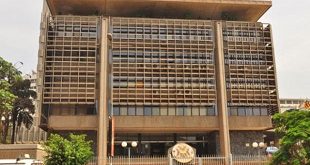
Global leaders commit investments and partnerships on effects of climate change
| THE INDEPENDENT | African and European countries and international institutions have announced that they will jointly invest more in climate adaptation in Africa.
The pledges were among initiatives in the Adaptation Action Agenda unveiled at the first online Climate Adaptation Summit 2021 hosted by the Netherlands on Jan.25 and 26. The initiatives will guide the Decade of Action towards 2030.
More than 30 world leaders, 50 ministers, and 50 international organisations gathered together with scientists, the private sector, civil society, youth representatives and over 18.500 registered participants at the Climate Adaptation Summit.
They joined forces in 27 different sessions to share knowledge, create action and drive the agenda toward a climate resilient future in 2030.
A comprehensive Adaptation Action Agenda was launched at the summit. It spells commitments by global leaders to deliver concrete investments and partnerships to make the world more resilient to the effects of climate change.
It was stressed in several events how important it is to create action on the ground and several partners up scaled the best national and subnational adaptation efforts and innovative collaborative experiences to deliver the most effective results and international partnerships.
Climate change adaptation is the process of adjusting to current or expected climate change and its effects. It is one of the ways to respond to climate change, along with climate change mitigation. Without mitigation, adaptation alone cannot avert the risk of “severe, widespread and irreversible” impacts.
Speaking at the Summit, the UN Secretary General, Antonio Guterres, called adaptation “the neglected half of the climate equation.” He said this is unacceptable and called for all donor and multilateral development banks to address the “huge gaps” in adaptation funding by allocating 50% of their climate finance to adaptation.
Guterres pointed at the recent United Nations Environment Programme (UNEP) Adaptation Gap Report which calculates annual adaptation costs in developing countries alone to be in the range of $70 billion and estimated to reach $300 billion in 2030.
The UN’s Sustainable Development Goal 13, set in 2015, targets to strengthen countries’ resilience and adaptive capacities to climate-related issues. The Summit took place as the pandemic continues to erode recent progress in building climate resilience, leaving countries and communities more vulnerable to future shocks.
At the event, 300 speakers shared their insights and plans, and partners from all over the world contributed 160 side events during the 24 hours. Presidents Ali Bongo Odimba of Gabon, Nana Akufo-Addo of Ghana, Carlos Alvarado Quesado of Costa Rica and Uhuru Kenyatta of Kenya participated.
John Kerry, the U.S. Climate Presidential Envoy gave the keynote speech and prime ministers Keith Mitchell of Grenada and Sheikh Hasina of Bangladesh spoke together with Ban Ki-moon, Co-Chair of Global Center on Adaptation, and Kristalina Georgieva, Managing Director of the IMF.
The hosts, Netherlands for example, pledged 20 million euros extra to the adaptation fund for least developed countries to adapt to climate change.
The Netherlands is also investing 100 million euros in the Drylands Sahel program for sustainable agriculture and better incomes for farmers and livestock farmers, with special attention for young people and women.
The African Development Bank (AfDB) announced a new Africa Adaptation Acceleration Program (AAAP).This flagship program will focus on agriculture, infrastructure, youth and innovative finance. The African Development Bank has committed to mobilise $25 billion as climate finance between 2020 and 2025, of which at least 50% will support climate adaptation and resilience building. AfdB and the Global Center on Adaptation (GCA) will use this to leverage an additional $12.5 billion through other key partners.
Farmers supported
The World Food Programme, World Resources Institute, World Business Council on Sustainable Development, Global Center on adaptation and Columbia University/IRI have launched an Investment Blue print to help scale the provision of climate information to 100 million smallholder farmers using digital technologies.
This Blueprint for Climate‐informed Digital Advisory Services supports countries to unlock the potential for climate resilient agriculture provides new insights on best practice for digitally enabled climate services and delivers an investment framework against which donors and governments can confidently invest to scale coverage and usage of critical services to enhance farmer resilience.
The Investment Blueprint was informed by working groups involving more than 40 organisations, including the World Meteorological Organization, Bill and Melinda Gates Foundation, Alliance for a Green Revolution in Africa and many others.
The International Fund for Agricultural Development launched a new umbrella fund–The Rural Resilience Programme (2RP) with one key pillar, the enhanced Adaptation for Smallholder Agriculture Programme (ASAP+).
ASAP+ will increase the climate resilience of 10 million vulnerable people in numerous countries, particularly women and youth, enabling an increase in food and nutrition security. The German Federal Ministry for Economic Cooperation and Development (BMZ) has presented their efforts to mainstream climate adaptation into the new strategy of their special initiative ‘One World ‐No Hunger’, with a special focus on an agro‐ecological approach, reaching over 60 million farmers.
 The Independent Uganda: You get the Truth we Pay the Price
The Independent Uganda: You get the Truth we Pay the Price



